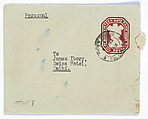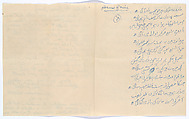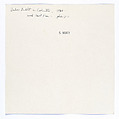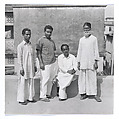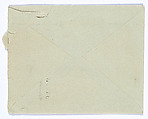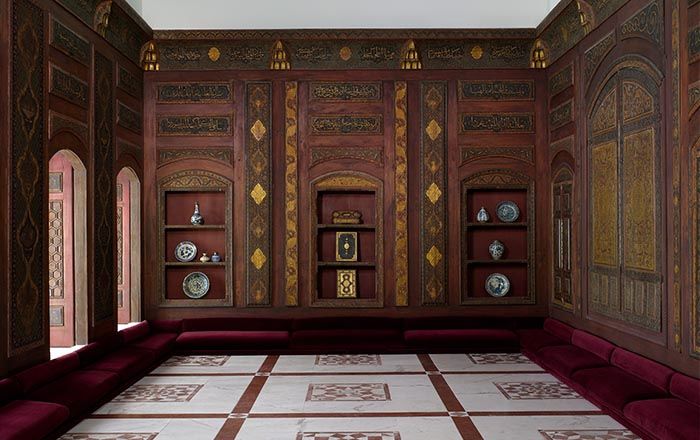On loan to The Met The Met accepts temporary loans of art both for short-term exhibitions and for long-term display in its galleries.
Letter and verses from Prince Bedar Bakht to James Ivory, May 3, 1960
Not on view
James Ivory was introduced to Bedar Bakht in 1960 by Imrat Khan, brother of Ustad Vilayat Khan (both sitar maestros). Ivory photographed
the prince on that occasion, and the two men subsequently had a short correspondence that included the poem in Urdu displayed here. The
translator of these verses, Professor Tahira Naqvi, who translated these verses, notes: “Like the ghazals (lyric poems) of Bahadur Shah Zafar, this ghazal expresses the sorrows and sadness of the poet’s life. In the last she’r (couplet), the poet makes excellent use of his takhalus (pen name), bedaar, which means “awake.”
He who has nothing to do with sympathy for mankind
[He] does not have the right to be a human being in this world
Ahh where is the friend to whom I can make an offering of
my heart
No one in this world of love is faithful
Why should he who loves not find [everything] easy
What is difficult is not difficult in love
When did I not have sovereignty over the realm of the heart
When did that cruel one not take up arms against me
I am tearful, your memory is with me, I am alone
I have nothing to do with those who inhabit this world
Today every particle of the world has awakened
Ahh Bedar, [but] my fate is not awake
This image cannot be enlarged, viewed at full screen, or downloaded.
This artwork is meant to be viewed from right to left. Scroll left to view more.
